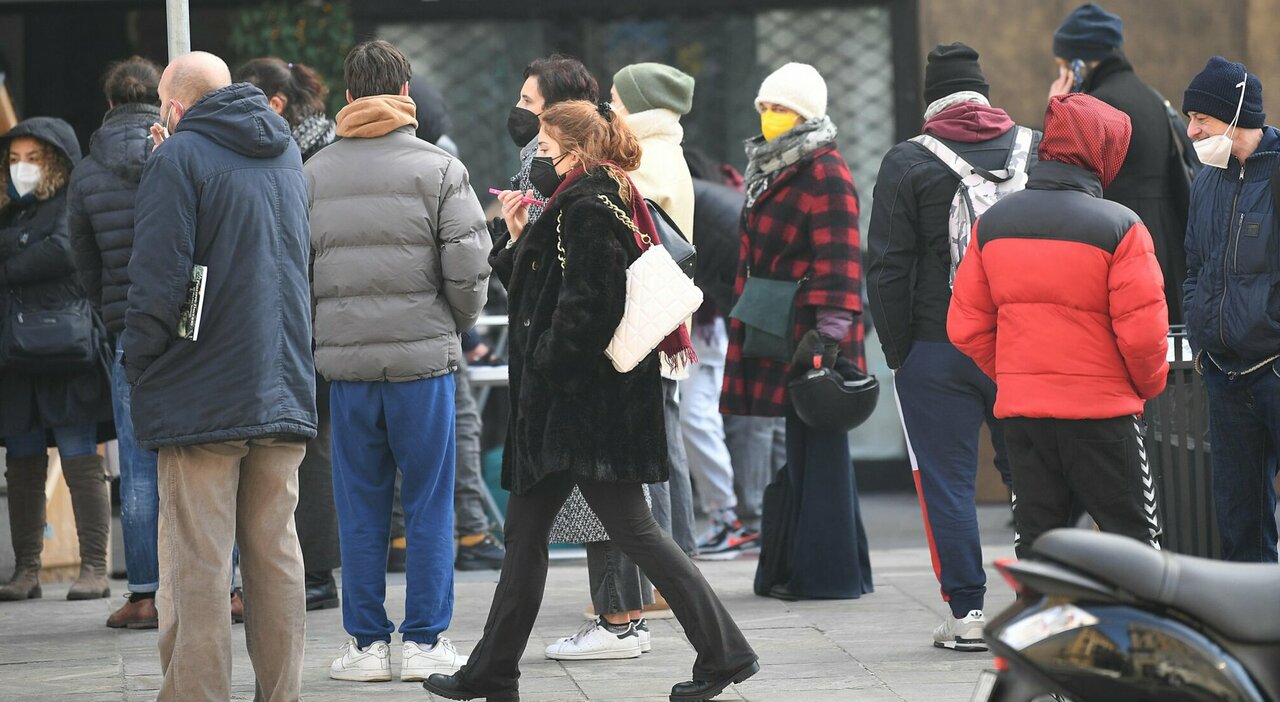The percentage is not very high, but the risk is there. This is why the case of reinfection was not overlooked by the latest report from the Higher Institute of Health, which told how from 24 August to 9 January 2022 108,886 cases of reinfezioni, equal to 2.7% of the total number of notified cases. In the last week, the percentage of reinfections increased to 3.2%, a stable figure compared to the previous week (3.4%). Guilt, needless to say, of Omicron, which according to the latest English studies is likely to infect those who are healed up to five times more than the variant Delta. The post-contagion protection of the Covid as we knew it before the Omicron wave, it no longer exists: before it was around 85%, now it fluctuates between 19 and 20%. And now that millions of Italians are affected by the virus, questions about possible reinfections once healed are back in fashion.
Omicron dominant, but Delta cases are also increasing: from reinfections to hospitalizations, here’s what we know
What is reinfection
To be a case of reinfection, the infected person must contract Covid 90 days after the previous illness: for the Ministry of Health, however, there is another possibility, that is, less than 90 days but with a different viral strain, documented by genotyping.
Reinfection, who is most at risk of resuming Covid?
The most at risk, explains the Higher Institute of Health, are the unvaccinated (even compared to those who covered themselves with the first dose) and health workers, at the forefront of the battle against the virus. In particular, the ISS report tells how there were 21 thousand cases of reinfection in the unvaccinated between mid-December and mid-January, while 2,800 were vaccinated with at least one dose at the time of the first diagnosis and 65 thousand among those who received the vaccine. after the first of the infections. Chapter health workers: over 4 thousand reinfections in a month against 37 thousand first diagnoses. The age groups most affected are those of the 20-39 year olds (39% of reinfections) and the 40-59 year olds (34%).
Covid, the mystery of the “invincibles”: this is why some never get infected (but with Omicron everything changes)
Symptoms and the Omicron Case
So what’s saving ICUs and hospitals? Vaccines and the immune response: those who have completed the vaccination cycle even with the booster dose are clearly more protected than those who have not or are undecided. The other answer – documented by studies from England and the United States – concerns the T lymphocytes, the immunological memory cells that “remember” previous infections while avoiding severe cases.
«Up to mid-December, reinfections were about 1% of the total Covid cases notified. In the last two weeks, even if the data is in the consolidation phase, the percentage of reinfections has increased. So it is likely that whoever got infected with Delta is now reinfecting with Omicron. Today it is very difficult to say the opposite ”, explained Nino Cartabellotta, President of the Gimbe Foundation. But who took Omicron, can take it back? The answer is that it is highly unlikely, because our organism after contagion with the variant produces a response against that specific virus, avoiding other reinfections with the same variant.
© breaking latest news
